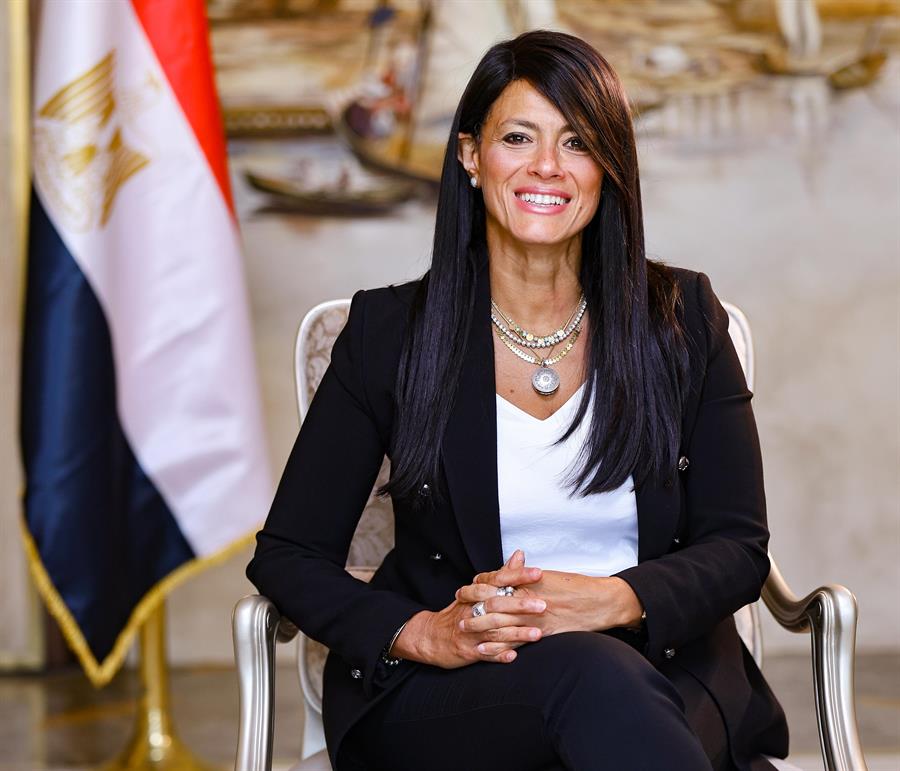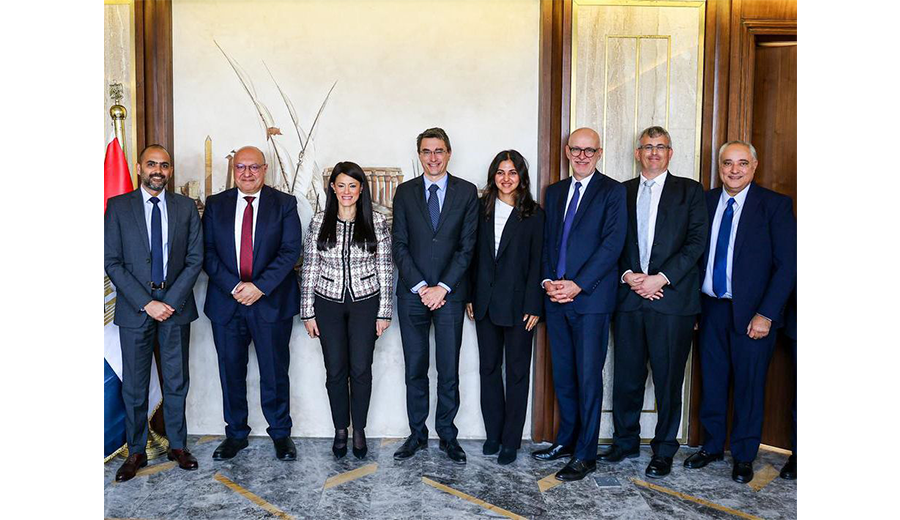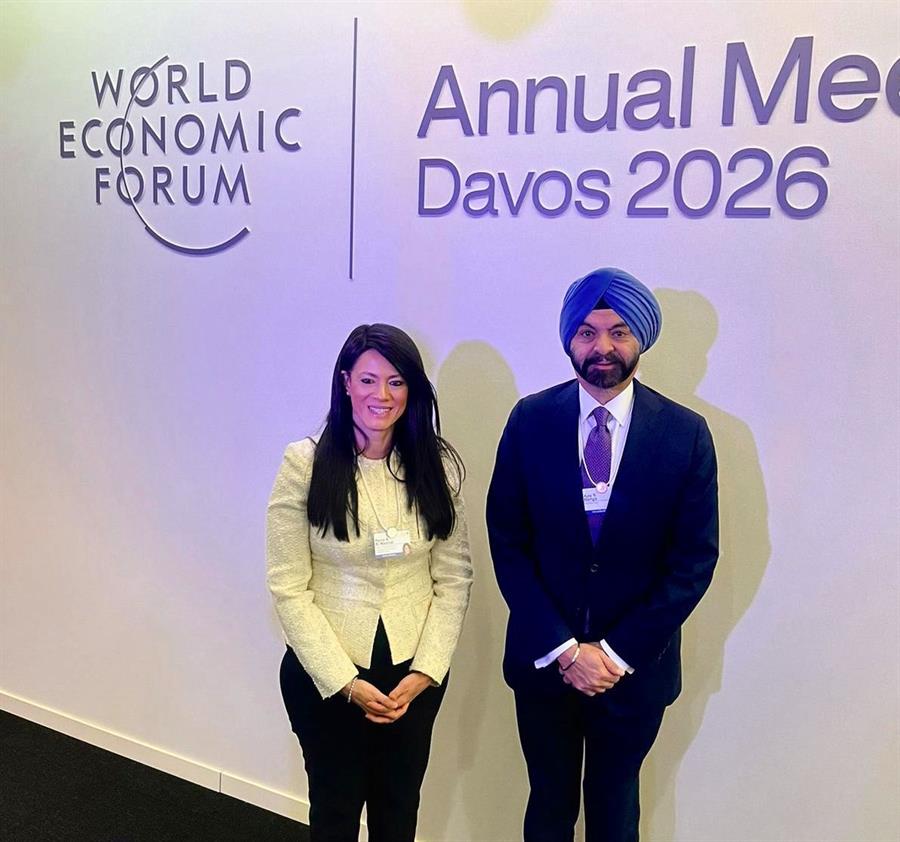Egypt Participates in Drafting and Launching the G20 Development Working Group Ministerial Declaration
26 July 2025
Declaration Sets Common Priorities to Enhance Domestic Resource Mobilization and Apply Innovative Development Financing Mechanisms
Egypt Participates in Drafting and Launching the G20 Development Working Group Ministerial Declaration.
G20 Development Ministers Reaffirm Commitment to Sustainable Development Agenda and Enhance Shared Responsibility to Address Global Challenges.
H.E. Dr. Rania Al-Mashat Highlights Egypt's Effective Contribution to the Seville Conference Supporting Development Finance Efforts in Developing Countries.
Al-Mashat:
It is a Necessity to Make Room for the Private Sector, Improve Governance of International Financial Institutions, and Enhance the UN's Role in Global Economic Structuring.
Urgent Need to Scale Up Blended Finance, Public-Private Partnerships, and Debt-for-Development Swap Programs
We Look Forward to Translating the Outcomes of the Development Ministers' Meeting into Effective Practices and Tangible Policy Progress to Ensure a More Sustainable Future for All Countries.
H.E. Dr. Rania A.
Al-Mashat, Minister of Planning, Economic Development and International
Cooperation, represented the Arab Republic of Egypt at the G20 Development
Working Group Ministerial Meeting held in South Africa.
She also
participated in drafting and launching the Ministerial Declaration at the
conclusion of the meetings.
The Ministerial
Declaration, issued at the meetings, affirmed that development financing is at
the core of shared priorities. It also highlighted the urgent need to enhance
domestic resource mobilization, address illicit financial flows, and strengthen
the role of multilateral and innovative financing mechanisms.
The G20 reaffirmed
its commitment to the 2030 Agenda for Sustainable Development, its pledge to
leave no one behind, and its enhanced shared responsibility in confronting
global challenges and interconnected crises, from debt to global inequalities,
climate change, and the SDG financing gap.
During her
participation, H.E. Dr. Rania Al-Mashat highlighted Egypt's experience in
launching the "Country Approaches for Financing Sustainable Development
and Climate Action" initiative within the Seville Platform for Action,
with the aim of advancing integrated financing frameworks globally.
Egypt co-leads this
initiative (alongside South Africa, the United Nations Development Programme,
the United Nations Department of Economic and Social Affairs, the Organisation
for Economic Co-operation and Development, UNICEF, regional development banks,
and others).
Its objectives
include 100 countries implementing integrated financing programs or country
financing platforms funded by public, private, and philanthropic sources by
2030.
Egypt has already
begun joint work with Mexico to understand the mechanism for designing and
implementing national platforms.
Regarding
stimulating large-scale investments, H.E. Dr. Al-Mashat emphasized the
importance of allowing the private sector to play an effective role in
development financing, improving governance in international financial
institutions, and strengthening the United Nations' role in setting global
economic rules.
She also stressed
the significance of debt sustainability and updating the basis for calculating
Debt Sustainability Analysis (DSA) to ensure a fairer assessment for developing
countries, particularly in Africa, and to support these countries with
incentive tools and mechanisms to overcome ongoing debt challenges.
In line with the
G20 ministers' declaration, which highlights the urgent need to bridge the $4.5
trillion annual SDG financing gap, H.E. Dr. Al-Mashat affirmed the pressing
need to expand blended finance and public-private partnerships, and to
implement debt-for-development swap programs.
She pointed to
Egypt's experience, particularly with Italy, Germany, and China, in providing
fiscal space for investment in high-impact projects in food security, women's
empowerment, environmental protection, and climate change, making it a
successful and replicable model.
Furthermore,
between 2020 and May 2025, Egypt successfully mobilized approximately $15.6
billion for private sector financing from international partners, with $4
billion allocated to the private sector within the Country Platform – the
"NWFE" program.
Despite the absence
of an internationally agreed definition for Global Public Goods, the G20
Ministerial Declaration stressed the urgent need to enable the provision of
these goods, along with the importance of taking action to support low-income
and developing countries in implementing the 2030 Agenda in accordance with
their national priorities and contributing to global well-being. This is what
the Development Working Group calls for: enhancing global consensus, research,
and cooperation on the protection and provision of Global Public Goods.
The Minister of
Planning, Economic Development and International Cooperation reiterated in her
speech that development financing and investments in essential sectors
represent the cornerstone of sustainable economic and social growth and have a
direct impact on human well-being and long-term productivity.
She confirmed the
necessity of achieving a common vision in line with the G20 Ministerial
Declaration, through mobilizing long-term and affordable financing and rethinking
multilateral cooperation. With over $460 trillion in global assets, the
potential to bridge SDG financing gaps is within reach – if countries redirect
capital towards inclusive and sustainable priorities.
H.E. Dr. Al-Mashat
concluded her speech by stating that the outcomes of this Ministerial Meeting
must represent the beginning of a practical phase – to translate commitments
into tangible progress, moving from policies to practices with strong political
will, while ensuring that no country is left behind in our pursuit of a more
sustainable and equitable future for all.
It is worth noting
that the G20 is the premier forum for international economic cooperation and
plays an important role in shaping and strengthening global architecture and
governance on all major international economic issues. Its membership includes
19 countries plus the European Union and the African Union. South Africa
assumed the G20 presidency from December 1, 2024, to November 2025, and is
committed to leading the G20 by focusing on people, development, and solutions
in a complex global geopolitical landscape.
Building on Egypt's
pioneering experience as a middle-income country that successfully balanced
national priorities with leveraging available financial tools from international
financing institutions, Egypt has been a recurring guest nation at the G20
since 2016. This includes invitations under various presidencies, such as
China, Japan, India, Brazil, and South Africa.
In 2024, under
Brazil's presidency, Egypt was invited to attend all G20 meetings throughout
the year, marking its second consecutive year as a guest. Looking ahead to
2025, South Africa has extended an invitation for Egypt to participate in
working group meetings and ministerial gatherings, an invitation that will
remain valid until the end of South Africa's G20 tenure in November 2025.









